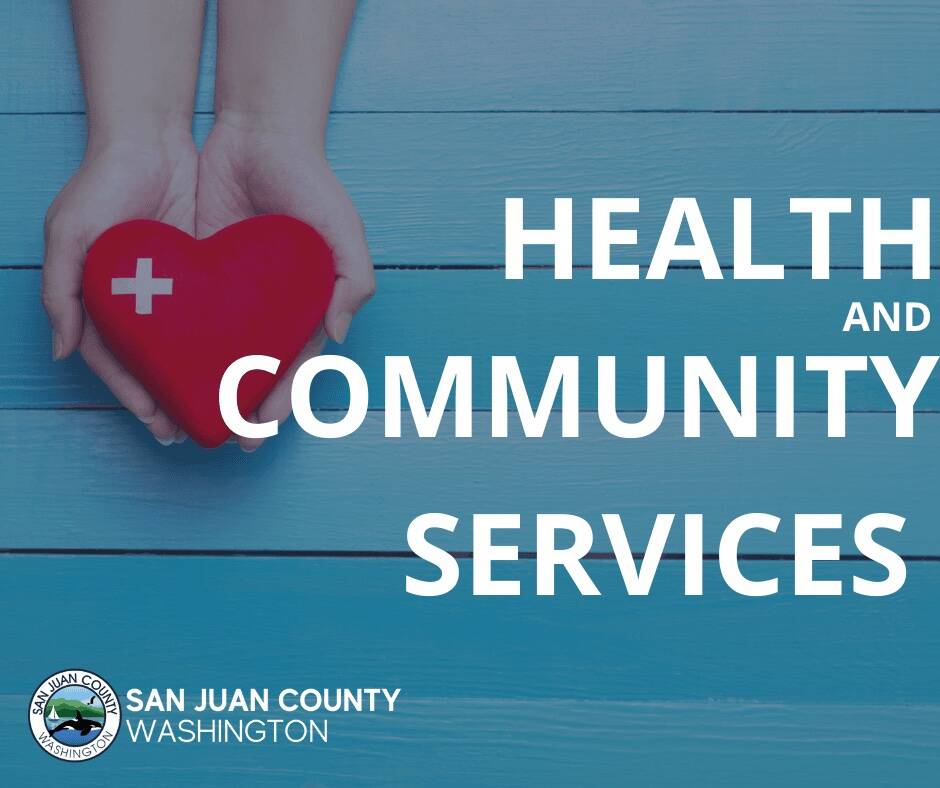Submitted by San Juan County
San Juan County Health & Community Services wants to remind you of a few tips to make spring as enjoyable and healthy as possible. Avian influenza is present in Washington, so here’s a breakdown of what you need to know to keep you and your loved ones safe, whether they be human, feathered, or furred.
What is Avian Influenza (Bird Flu)?
Avian influenza (avian flu or bird flu) is a disease caused by an infection with avian influenza Type A viruses. A strain of highly pathogenic avian influenza (HPAI), H5N1 virus, has been detected in Washington state since 2022. These viruses occur naturally in wild aquatic birds, but can also infect poultry and other bird species, as well as wildlife and domestic animals. On rare occasions, bird flu viruses infect people and make them sick.
Bird Flu in Humans
Bird flu infections in people are rare and usually happen after prolonged contact with infected birds or other animals while not wearing appropriate personal protective equipment (PPE). People can become infected if the virus gets into a person’s eyes, nose or mouth or if it is breathed in. Here are tips to reduce your risk of infection:
Do not handle wild birds and animals. Observe from a distance, if possible. Wild birds can be infected with avian influenza viruses even if they don’t look sick.
Avoid unprotected contact with domestic birds (poultry) or other animals that may be sick, have died, or are suspected to have bird flu virus infection.
Do not touch surfaces that appear to be contaminated with animal feces, raw milk, litter, or other materials contaminated by birds.
Do not prepare or eat raw or undercooked meat or related food products, such as unpasteurized (raw) milk or raw cheeses. Highly susceptible populations are more likely than the public to develop foodborne illnesses from eating raw or undercooked foods.
If you have a backyard bird flock and suspect some of your birds may have avian influenza virus, take extra precautions to keep yourself safe.
If you are a hunter who handles wild birds, practice good hygiene to prevent any potential disease spread. Dress game birds in the field when possible. It is extremely unlikely that hunters or people feeding wild birds will contract bird flu, but following common-sense precautions is recommended to reduce the risk of contracting any wildlife disease.
Extra precautions against occupational exposure to infected birds should be taken by the following people: workers at bird rehabilitation centers and other animal sanctuaries; farmers and owners of poultry, backyard bird flocks, and livestock; clinicians evaluating patients with signs/symptoms of avian influenza; and responders to bird flu outbreaks.
Bird Flu in Poultry and Other Animals
Although avian influenza is a highly contagious disease among birds, the risk of it spreading to other mammals is low. However, there are still precautions you can take to keep your poultry or pets safe from possible infection.
Many families choose to keep birds for many reasons. If you own poultry, knowing key prevention practices to ensure your health and the health of your family and flock is important. Biosecurity refers to the steps we can take to keep diseases away from poultry and people. For more information about how to keep your flock healthy, follow the guidelines in this poster and this website.
Domestic animals (like cats and dogs) are unlikely to get sick from bird flu, but there is a possibility of exposure if they contact sick or dead birds infected with bird flu viruses. If your pet is showing signs of illness, call your vet and disclose if they have come in contact with a sick or dead wild bird.
This is the fourth and final article in our spring safety series. Check out our articles about preventing tick exposure, preventing hantavirus exposure, and preventing rabies exposure. Our department wishes you a safe and happy spring!



